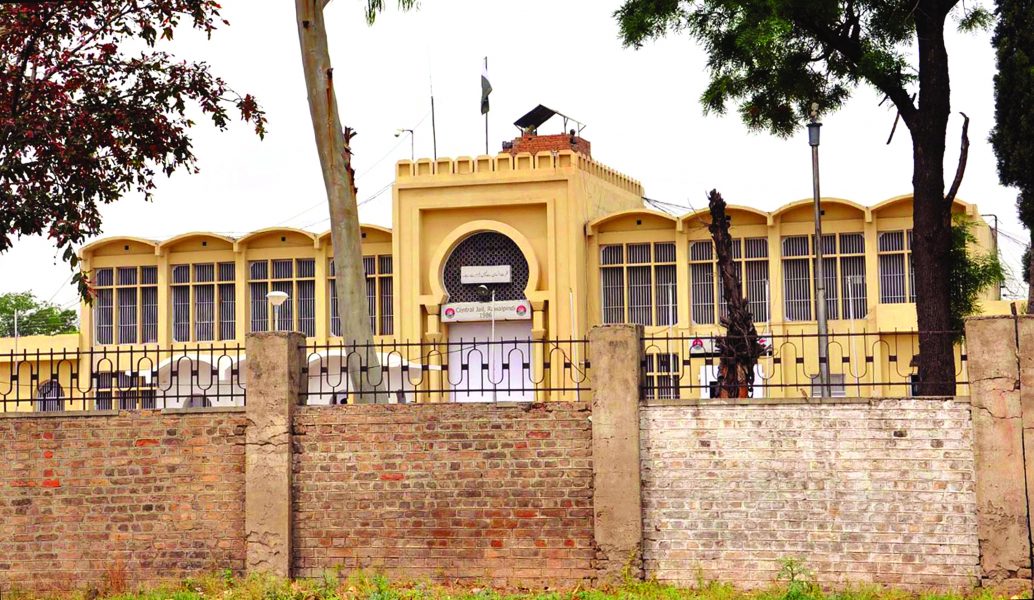Adiala Jail — known for housing high-profile prisoners —currently hosts some 5,700 inmates, much higher than its stipulated capacity of 2,100 prisoners.
Overcrowding in jails is perhaps an issue confronted by almost all the prisons in the country where the inmates are much more than the allowed capacity.
Bol News while talking to some relatives of prisoners and official sources at Adiala Jail came to know about a host of problems the inmates and their visitors face.
The sources have revealed that a major chunk of the medicines and other needs of the prisoners are met by philanthropists and non-governmental organizations that are working for the welfare of the prisoners.
Mohammad Qadeer, a visitor to Adiala Jail who along with his aunt had come to meet his uncle from a village, said without greasing the palms of the jail officials it is almost impossible to meet prisoners.
However, he chose not to give the details of the illegal activity as he cited reasons of facing more hurdles from the jail officials.
Qadeer said he and his family come once a month and sometimes in two months to avoid the difficulties of getting through to the prisoner for a chat.
Deputy superintendent Adiala Jail Chaudhary Mazhar Panjota has confirmed that at present some 5,700 prisoners are in Adiala Jail against the capacity of 2,100. But another seven prisoners’ barracks with each barrack having the capacity of housing 60 inmates are under construction, he added. He said the capacity of the hospital within the premises of Adiala Jail is being increased from 80 to 100 beds. Currently the inmates are being looked after by a male and a female doctor for basic healthcare purposes, however in case of emergencies, the patients are taken to the District Headquarters Hospital in Rawalpindi, he added.
A source in the jail informed Bol News that the prison hospital could hardly provide aspirin for minor pains, let alone handling other health problems.
Some patients with heart stroke or some other serious ailments have died on their way to the city’s hospital as it takes well over two hours to reach there especially during the daytime due to heavy traffic at the main Adiala Jail road that links it to Rawalpindi city.
An old man, requesting anonymity, who is serving life imprisonment in a murder case, was also critical of the poor sanitation and food quality at the jail. He also complained about the difficulties he faces in meeting his son and added that only by bribing the jail officials the meeting is possible.
NGOs to the rescue
The deputy superintendent Adiala Jail has admitted that the social welfare bodies which are working for the welfare of the prisoners and philanthropists help in meeting the needs of the prisoners, and also help the inmates in paying their fines that are imposed by courts in some cases.
He said that Madina Foundation, an NGO working for prisoners’ rights, had provided 2,000 blankets and sweaters for prisoners this year while the Aleem Khan Foundation, another NGO, had installed six water filtration plants in the jail premises that spread over an area of 75 acres.
Mazhar Panjota also said that currently there are 130 lady prisoners while in the juvenile cell, 54 children below the age of 18 are housed by the jail. He said the staff managing the women barracks comprises female staff members only and no male official except the superintendent and the deputy superintendent are allowed to visit the barracks.
He said every month sessions and additional sessions judges of both Rawalpindi and Islamabad courts pay six visits to inspect the facilities being provided to the prisoners at Adiala Jail. The visiting judges also hold sessions to listen to the complaints of the prisoners.
Furthermore, he informed that almost half of the prisoners at the jail were either convicted by the federal capital courts or are facing trial in the lower and higher courts of Islamabad.
Regarding the availability of medicines in the jail hospital the deputy superintendent informed that they have a limit of Rs25,000 to purchase medicines per day but the demand is much higher as the heart, sugar, hepatitis and other serious patients are in considerable number there. He, however, said that some well-off patients purchase their own medicines.
Meanwhile a report recently submitted to the Federal Ombudsman Secretariat has revealed that 88,687 prisoners are in 116 jails across the country against the allocated capacity of 65,168. The Federal ombudsman has directed all the provincial chief secretaries to make the biometric identification system functional which is to be integrated with all the relevant departments to improve the overall probation and parole system.
The report has also revealed that some 425 prisoners have been diagnosed HIV/AIDS positive. A further breakdown of the cases showed that in Punjab 225 male and two female convicts were suffering from the disease, while 115 males and one female in Sindh were suffering from the disease. Some 39 cases were found in Khyber Pakhtunkhwa and 13 cases came to the fore in Balochistan.
The report further revealed that inmates are forced to live in inhumane and unhygienic conditions with improper diet and lack of clean drinking water. Instances of sexual harassment and violence against female prisoners was also quite common.
Undertrial prisoners
In another report presented by Federal Minister for Human Rights Dr Shireen Mazari on the plight of prisoners showed that 65 per cent of the prisoners in the jails are yet to be convicted as their cases are pending with the courts. The report pointed out that decisions of 55pc cases in Punjab, 71pc in KP, 70pc in Sindh and 59pc in Balochistan have not been announced. The report further pointed out that some 290 male and eight female prisoners in Punjab, 50 in Sindh, 235 in KP and 11 in Balochistan are mentally disabled.
The report has further revealed that 1,832 prisoners have been diagnosed with hepatitis, while 173 are suffering from tuberculosis. Some 594 prisoners are suffering from various mental disorders while 2,192 are suffering from other illnesses.
Furthermore, the report has brought to the fore that all the district and central prisoners across Pakistan have access to hospitals but they lack important medical equipment such as the ECG, X-Ray, ultrasound machines, oxygen cylinders, dental units, laboratories and beds in the prison hospitals.
The report also says that 70pc of the prison staff is untrained and unaware of their duties under the Prison Rules.



















